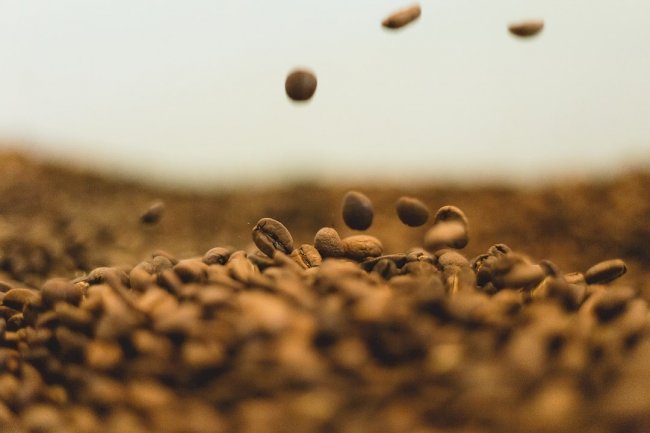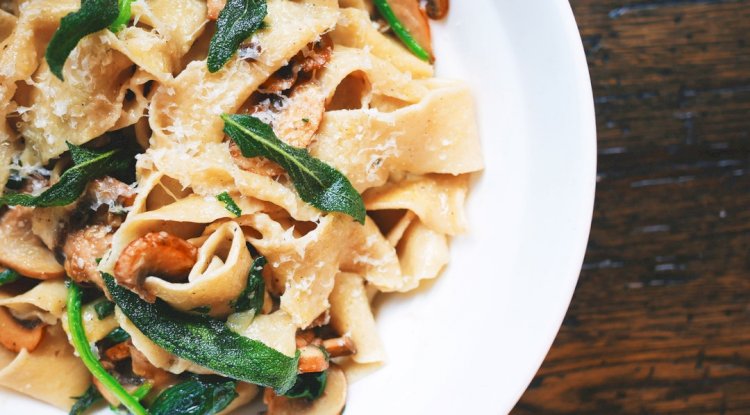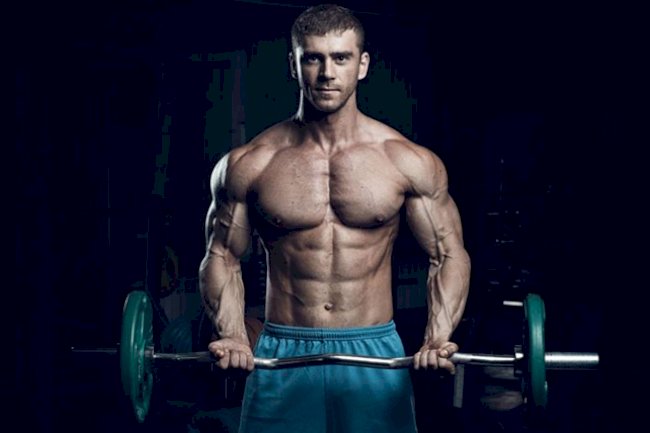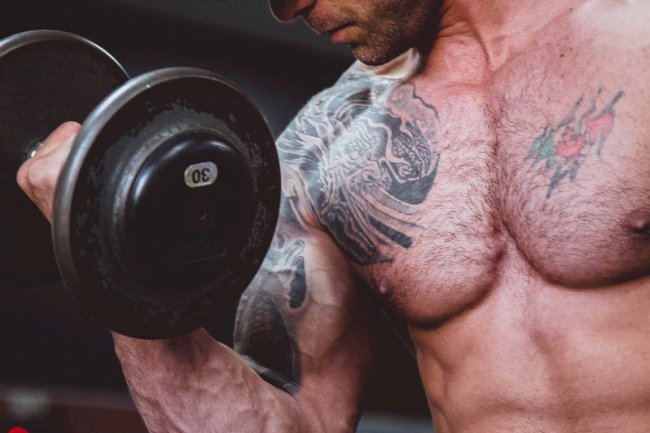What do BCAAs do and How do They Work?
Thinking about supplementing your workouts with BCAAs? Before you do, you need to check out this article. Because it’s guaranteed to save you money… and a whole lotta wasted time.
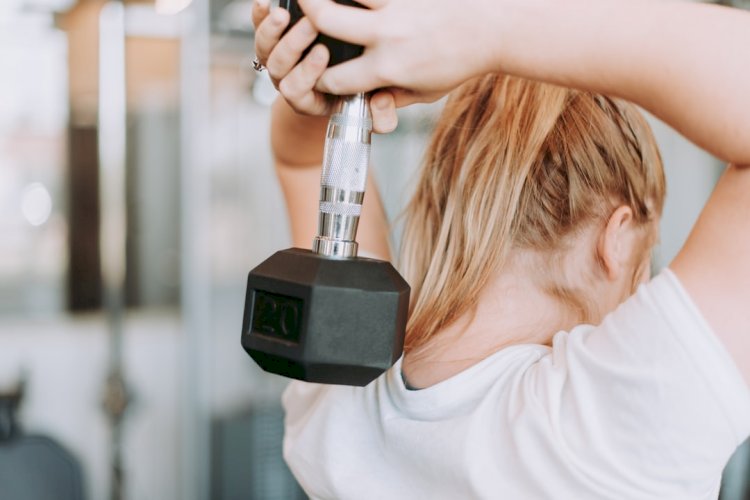
You work out hard in the gym and nourish your body with the right vitamins, minerals and healthy foods. But there’s just something missing.
Maybe you aren’t firming up as fast as you want to? Or those wobbly bits just won’t disappear no matter how much you target them?
There are still several women turning to branched-chain amino acids as a way of accelerating to their goals.
Here’s why…
It’s all about that protein
The protein you get from food is an essential part of recovery, metabolism and curve-building.
Food provides the energy you need to fuel your workouts, power your metabolism and feed your cells.
It’s essential, we all know that (pizza is life, don’t let anyone tell you different).
The food you eat provides ‘macronutrients’. One of these is protein.
Okay, so what does protein actually do?
There’s a reason why bodybuilders, figure athletes and pretty much every nutritionist tells you to eat more protein… because it helps to drive up your fat loss potential and build shapely lean curves.
When you ingest protein-rich foods such as eggs, chicken or soy, your body must break it down into small parts so that they can be shuttled to your cells.
Guess what these small parts are called?
Yep.
Amino acids.
What are BCAAs?
Branched chain amino acids are the building blocks of protein. They’re like the individual pieces that make up a protein jigsaw puzzle.
If you were to take a piece of steak or a fish or whatever and look at it under a microscope, you’d see that it was made up of peptides strings.
And these peptides are made up of individual proteins called amino acids.
Imagine your Nanna’s favorite pearl necklace she wears for Church. The pearls are like the amino acids and the bonds that keep them joined together are peptide bonds.
There are 20 different amino acids in total, each with their own individual job.
Some of these your body can make itself. They’re called non-essential amino acids as you can make them if you don’t get them from your diet.
Some are essential as you HAVE to get them from food.
Three of these essential amino acids are called branched-chain amino acids due to their chemical structure.
There are 3 branched-chain amino acids
- Leucine
- Isoleucine
- Valine
Like all the other amino acids, the BCAAs are building blocks of protein.
They make up around 40% or so of all essential amino acids and are highly involved in metabolism and muscle building.
Their big role is to do with muscle development.
What do BCAAs do within the body?
BCAAs are broken down in the liver and used by muscle cells to build muscle
The function of BCAAs is complex but also kind of simple.
On a cellular level, they help your body in a number of ways:
- Elevate what’s called muscle protein synthesis. This just means it puts your body into a muscle-building mode.
- Reduce muscle catabolism. This is when your body breaks down muscle for fuel.
- Provide energy during workouts. They turn up the workout dial to a fat-melting 11.
While protein is important for many things, it’s number one role is in regulating body composition.
How can this benefit your workout?
The greatest workouts come from passion, motivation, and grit.
But you can work your ass off in the gym and not get optimal results if your food skills aren’t up to scratch.
In other words, nutrition underpins everything.
BCAAs are pretty much essential if you want to develop a lean, toned and strong figure. Without protein you can’t get these all-important building blocks.
All amino acids are important… but it’s the BCAAs that supercharge your results.
Leucine ‘triggers’ muscle development
Out of all three branched-chain amino acids, it seems leucine wears the crown.
Several studies show that leucine has the biggest impact on muscle protein synthesis.
In one study, academics referred to leucine as an ‘anabolic trigger’ [1].
They stated that the BCAA was…
“…a key regulatory factor in the control of muscle mass” and that it was able to provide not just energy for exercise, but also replenish lost protein after periods of fasting”.
That’s why when you see BCAA supplements they tend to have three times the amount of leucine in them compared to isoleucine and valine.
You don’t need to take BCAA supplements!
So far, we’ve told you exactly how great BCAAs are. It’s true, without them you’ll never get that beach body you’re after.
But here’s the thing…
Unless you’re an athlete, you should be able to meet all your BCAA needs through your diet.
Eat sufficient protein and BCAA supplements aren’t necessary
In a recent academic review by world-leading authority Alan Aragon, BCAA supplements were analyzed for their benefits [2].
Aragon had taken time to look over all relevant studies on BCAA supplements and had identified that all research into BCAA supplement was performed on low-protein groups.
In other words, studies were asking healthy men and women who ate loads of protein to temporarily stop eating it. And then they were given a BCAA supplement.
It’s obvious that BCAAs were beneficial because protein intake was much lower than anyone would typically eat.
When you eat enough protein, you provide your cells with plenty of leucine, isoleucine, and valine. The ONLY time you’d benefit from a BCAA supplement would be if for some crazy reason you decided to stop eating protein and then instead bought an expensive supplement.
BCAAs do not provide any more benefit than a healthy, high-protein diet does. That’s the truth.
Most people don’t know that BCAAs are high in calories
Here’s something else to consider.
When you eat protein, you get just 4 calories per gram. Chicken, for example, provides a huge hit of the muscle-building macronutrient in very few calories.
But BCAAs are a concentrated source of protein blocks. And they provide more calories than you think.
According to the American Journal of Clinical Nutrition [3], BCAAs have the following calorie cost:
- Leucine: 4.65 calories per gram
- Isoleucine: 4.65 calories per gram
- Valine: 4.64 calories per gram
So, what does this mean?
If you’re tracking your calorie intake you need to factor a BCAA supplement in. Not only is it expensive in terms of your hard-earned dollars… it also has a high energy cost too.
Are BCAAs safe?
Yep, they’re more than safe.
BCAA supplements are made by simply extracting them from real food.
The only time you might need to think about throwing your BCAAs in the garbage is if you suffer from Lou Gehrig’s disease, have kidney issues or a genetic illness called syrup urine.
But again, you need to take them in the first place if you’re eating real food.
Summary
Branched-chain amino acids are a type of building block found in protein. They’re essential for helping you maintain lean muscle, burning fat and optimizing energy for your workouts.
Research shows that if you eat a high-protein diet you don’t need BCAA supplementation.
You can get everything you need from food.
Source: spotmegirl.com
What's Your Reaction?









